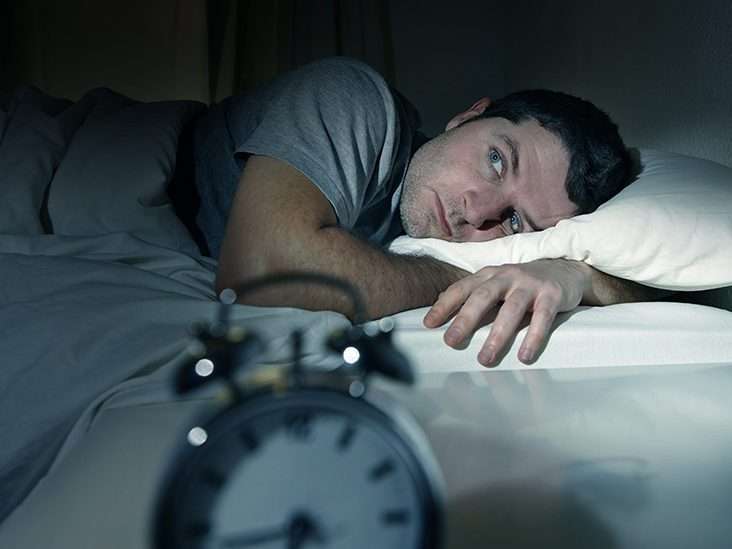
These are the best food supplements for insomnia
Getting a worthy amount of sleep is extremely vital for your health.
Sleep supports your body and brain function accurately. An upright night’s sleep can develop your learning, memory, decision-making and even your creativity.
Despite all these welfares, sleep quality and quantity are at an all-time low, and people gradually suffer from poor sleep.
Put in mind that good sleep often starts with good sleep practices and habits. However, for some, that’s not sufficient.
If you need a little extra help to get a good night’s sleep, consider trying what the best food supplements for insomnia symptoms are:
1. MX3 – is one the best food supplement for insomia
Natural pure xanthone capsules contain a compressed volume of the tremendously powerful antioxidant known as a Xanthone. MX3 capsule is one of the excellent inventions that have come out of the world of Garcinia mangostana. It can cure forty four (44) curable diseases, e.g. psoriasis, diabetes, goiter, hypertension, breast mass, sinusitis, insomnia, asthma among others.
Southeast Asia is the place which is said to be the origin of mangosteen fruit. Due to its immense health benefits it is called ‘the queens of fruits’ in Asian countries and the ‘food of the gods’ by French Caribbean.

A mangosteen tree takes a lot of time to grow and bear fruit. It can reach a height of over 75 feet. Nowadays people have realized the value of this drink which is sold in juice form worldwide. One can buy mangosteen products online which is the easiest way to buy this fruit juice. Juice should be bought after checking its quality and select those brands that have the whole fruit puree. It is however quite difficult to prepare this juice at home as the rind and the fruit has to be crushed and used for best results (Warren, 2007).
The mangosteen has long been recognized in Asia for its medicinal properties. The fruit is mentioned in medical diaries as far as back as the Chinese Ming Dynasty (1368 A.D.-1644 A.D.). Both the antioxidant and anti-inflammatory properties of the mangosteen are recognized widely in scientific literature and folklore medicine. In addition, the mangosteen has been shown to function as an immunomodulator, boosting the antiviral and antibacterial functions of the immune system.
2. Melatonin
Melatonin is a hormone your body produces naturally, which indicates your brain that it’s time to sleep.
This hormone’s sequence of production and release is inclined by time of day — melatonin intensities naturally rise in the evening and fall in the morning.
For this purpose, melatonin supplements is one of the best food supplement for insomnia and have become a current sleep aid, particularly in cases where the melatonin cycle is disturbed, such as jet lag.
What’s more, quite a few studies report that melatonin expands daytime sleep quality and duration. This is particularly helpful for individuals whose schedules oblige them to sleep during the daytime, such as graveyard shift workers.
Moreover, melatonin may develop overall sleep quality in individuals suffering from sleep disorders. Specifically, melatonin appears to lessen the time people need to fall asleep and increase the total amount of sleep time.
While there are also studies that did not detect melatonin had a helpful effect on sleep, they were mostly few. Those that did observe beneficial effects generally provided participants 3–10 mg of melatonin before bedtime.
Melatonin supplements look to be safe when used for short periods of time, but not much is known about long-term safety yet.

3. Valerian Root
Valerian is an herb native to Asia and Europe. Its root is usually used as a natural cure for symptoms of anxiety, depression and menopause.
Valerian root is also one of the most usually used sleep-promoting herbal supplements in the US and Europe.
However, research results remain inconsistent.
For example, two recent evaluations reported that 300–900 mg of valerian taken right before bedtime may increase self-rated sleep quality.
Nevertheless, all the observed developments in these studies were subjective. They relied on participants’ perception of sleep quality rather than on objective capacities taken during sleep, such as brain waves or heart rate.
Regardless, short-term consumption of valerian root appears to be harmless for adults, with minor, infrequent side effects such as dizziness.
So despite the lack of objective measurements behind valerian, adults may consider trying it out for themselves.
However, safety remains tentative for use long-term, and in distinct populations such as pregnant or lactating women.
4. Magnesium
Magnesium is a mineral involved in hundreds of processes in the human body, and is significant for brain function and heart health.
In addition, magnesium may support quiet the mind and body, making it easier to fall asleep.
Studies show that magnesium’s comforting effect may be partly due to its ability to regulate the production of melatonin, a hormone that monitors your body’s sleep-wake cycle.
Magnesium also appears to raise brain levels of gamma-aminobutyric acid (GABA), a brain messenger with comforting effects.
Studies report that deficient levels of magnesium in your body may be linked to troubled sleep and insomnia.
On the other hand, increasing your magnesium intake by consuming supplements may help you improve the quality and quantity of your sleep.
One study gave 46 participants 500 mg of magnesium or a placebo daily for eight weeks. Those in the magnesium group helped from overall better sleep quality.
What’s more, this group also had greater blood levels of melatonin and renin, two hormones that regulate sleep.
In another minor study, participants given a supplement containing 225 mg of magnesium slept well than those given a placebo.
However, the supplement also contained 5 mg of melatonin and 11.25 mg of zinc, making it hard to attribute the effect to magnesium alone.
It’s worth seeing that both studies were performed on mature adults, who may have had lower blood magnesium levels to begin with. It’s uncertain whether these effects would be as tough in individuals with a good dietary magnesium intake.

5. Lavender
Lavender is a plant that can be found on nearly all continents. It produces purple flowers that, when dried, have a selection of household uses.
Moreover, lavender’s soothing fragrance is said to enhance sleep.
In fact, several studies show that just smelling lavender oil for 30 minutes before sleep may be sufficient to improve the quality of sleep.
This outcome appears particularly tough in those suffering from mild insomnia, especially females and young individuals.
Moreover, a small study in elderly people reports that lavender aromatherapy may be as real as conventional sleep medications, with potentially fewer side effects.
Another study gave 221 patients suffering from mixed anxiety disorder 80 mg of a lavender oil supplement or a placebo per day.
By the completion of the 10-week study, both groups had experienced improvements in the quality and duration of sleep. However, the lavender group experienced 14–24% larger effects, without any reported unpleasant side effects.
Though lavender aromatherapy is said to be safe, the intake of lavender supplements has been associated with nausea and stomach pain in some cases.
It’s also worth stating that only a limited amount of studies could be found on the effects of lavender supplements on sleep. Thus, more research is needed before resilient conclusions can be made.
6. Passion Flower
Passion flower, also known as Passiflora incarnata or maypop, is a common herbal medication for insomnia.
The species of passion flower linked to sleep enhancements are native to North America. They are also currently cultured in Europe, Asia, Africa and Australia.
Passion flower’s sleep-promoting effects have been proven in animal studies. However, its effects in humans appear to depend on the form consumed.
One study in humans equated the effects of passion flower tea to those of a placebo tea made from parsley leaves.
Participants drank each tea for about an hour before bed for one week, taking a one-week break between the both teas. Each tea bag was allowed to steep for 10 minutes, and researchers took objective measurements of sleep quality.
At the end of the three-week study, the objective measurements specified the participants had not experienced developments in sleep.
However, when they were asked to rate their sleep quality individually, they rated it around 5% higher following the passion flower tea week compared to the parsley tea week.
On the other hand, another study compared the effects of a 1.2-gram passion flower supplement, conventional sleeping pills and a placebo. The researchers found no difference between the passion flower supplements and the placebo.
More studies are needed, but it’s worth stating that passion flower intake is generally safe in adults. For now, it seems that passion flower may provide more benefits when consumed as a tea than as a supplement.
7. Glycine
Glycine is an amino acid that makes a significant role in the nervous system. Recent studies show it may also help improve sleep and is is one of the best food supplement for insomnia.
Exactly how this works is not yet determined, but glycine is thought to act in part by lowering body temperature at bedtime, signing that it’s time to sleep.
In one study, participants who are having a hard time to sleep consumed 3 grams of glycine or a placebo immediately before bedtime.
Those in the glycine group reported feeling less fatigued the next morning. They also said their liveliness, peppiness and clear-headedness were greater the next morning.
Another research investigated the effects of glycine in participants suffering from poor sleep. Researchers acquired measurements of their brain waves, heart rate and breathing while they slept.
Participants who consumed 3 grams of glycine before bedtime showed better objective measures of sleep quality compared to the placebo. Glycine supplements also aided participants fall asleep faster.
You can purchase glycine in pill form, or as a powder that can be diluted in H2O. According to research, taking less than 31 grams per day shows to be safe, but more studies are needed.
You can also get glycine by consuming foods rich in the nutrient, including bone broth, spinach, eggs, poultry, fish, beans, meat, kale, cabbage and fruits like kiwis and bananas.
8–10. Other Supplements
There are many best food supplement for insomnia on the market. However, not all are supported by strong scientific research.
The list below describes a few additional supplements that may be helpful to sleep, but requires more scientific investigations.
8. Tryptophan: One study says that doses as low as 1 gram per day of this essential amino acid may help improve sleep quality. This dosage may also help you fall asleep quicker.
9. Ginkgo biloba: Consuming 250 mg of this natural herb 30–60 minutes before bed may help lessen stress, improve relaxation and promote sleep.
10. L-Theanine: Consuming a daily supplement containing 200–400 mg of this amino acid may aid improve sleep and relaxation.
Kava is another best food supplement for insomnia that has been linked to sleep-promoting effects in some research. It originates from the South Pacific islands and its root is traditionally prepared as a tea, although it can also be consumed in supplement form.
However, kava use has also been linked to severe liver damage, potentially due to low-quality production or adulteration. For this reason, it’s best to purchase only supplements that have been certified by a reputable third-party organization.
SUMMARY:
The best food supplement for insomnia above may also help stimulate sleep. However, they tend to have fewer studies backing them up, so more research is needed before solid conclusions can be made.
Source: Healthline.com